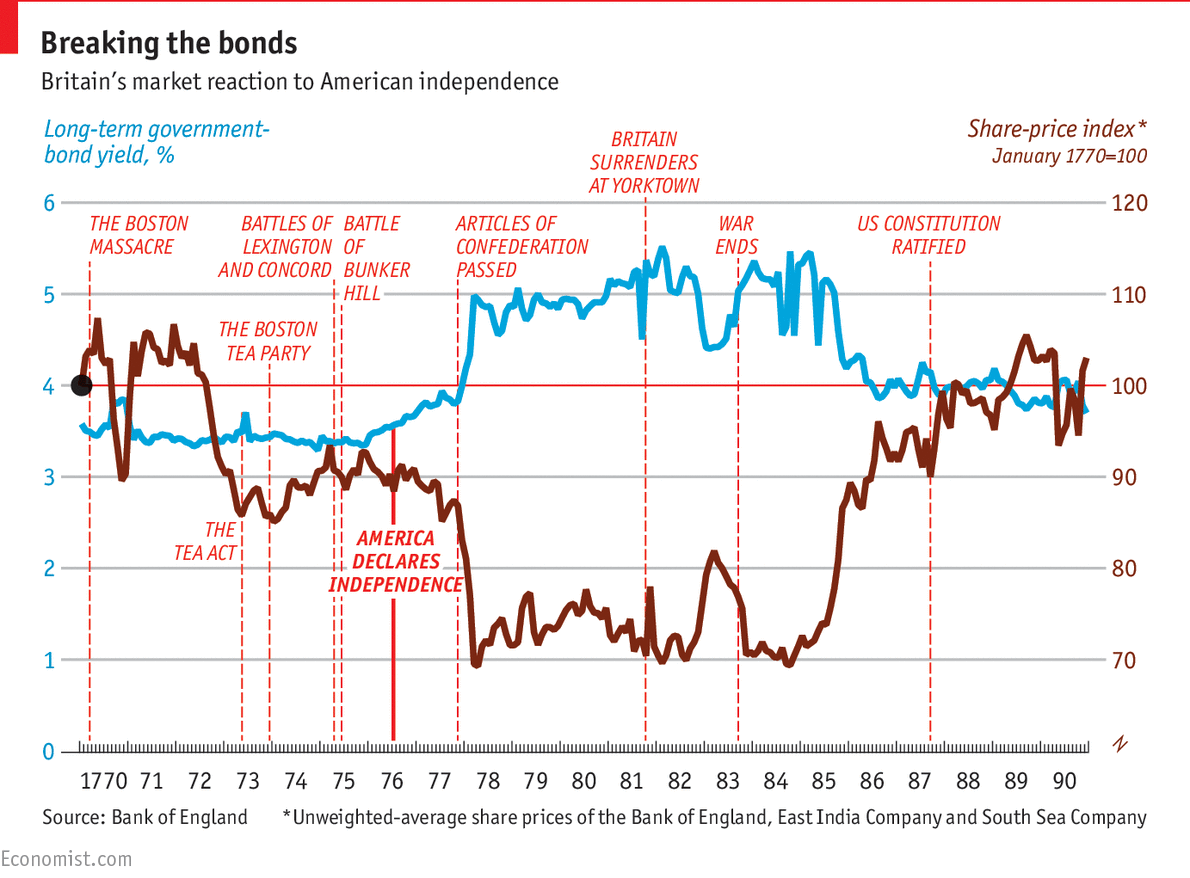Language games at The Economist
« previous post | next post »
An ad that's been popping up for me on the web recently:

I expect that others have used asterisks in this particular way before, but web search engines seem generally to treat "**UK" as plain "UK" — perhaps someone else will have better luck finding precedents. (Of course, general taboo-avoidance via asterisks is common and has been discussed here many times.)
In this case, Big Internet Brother is inadequately cross-indexed, since I'm already a subscriber, and therefore following a link in my email Daily Dispatch from The Economist News Desk led me to a nicely-illustrated addition to the Brexit portanteau collection, in the form of the July 4 Daily Chart "How 'Amexit' sent shockwaves through the financial markets":

J.W. Brewer said,
July 6, 2016 @ 3:16 pm
It's like they're using the asterisks to bowdlerize the not-quite-expletive FCUK, which apparently has been a thing since at least 1991: https://en.wikipedia.org/wiki/French_Connection_(clothing)#FCUK_branding_controversy.
Michael said,
July 6, 2016 @ 5:46 pm
Databases have for many years used the asterisk as a "Wildcard operator," which is to say that it allows you to search for something without necessarily spelling out all of the letters. In Library School, the classic example is to say that by searching "librar*" you can get results that include library, libraries, librarian, etc.
Google apparently has extended this concept a bit: http://www.googleguide.com/wildcard_operator.html
They actually use the wildcard to replace whole words, so in theory by typing "**UK" you should get a series of results that have two words before the letters UK. Trying it out, however, it just seems to give me the same results I would get for a "UK" search, with all of the news and image results eliminated. For this, I have no explanation, save for the mysteries of Google's algorithms.
Theophylact said,
July 6, 2016 @ 6:57 pm
But shouldn't it be "OH *U*K"?
Lazar said,
July 6, 2016 @ 9:19 pm
@J.W. Brewer: King Cnut was known to shop there.
Michael Watts said,
July 7, 2016 @ 12:55 am
* is used as a wildcard character by shells, but I think of databases as using % for the wildcard.
Mark said,
July 7, 2016 @ 8:24 am
Could this be trading on the French Connection's designation, "FCUK"? That would make "**UK" at three removes from the obscenity, but so is calling someone a right "Jeremy".
Brett said,
July 7, 2016 @ 5:59 pm
I confess, I didn't even notice that "UK" was not actually the last two letters of "FUCK" when I read it the first time.
K. Chang said,
July 11, 2016 @ 11:05 pm
@Brett — that shows that we recognize grouping of letters, not the exact order. :) Interesting, isn't it?
Garrett Wollman said,
July 17, 2016 @ 7:22 pm
@Michael: the "*" in glob syntax derives ultimately from the "Kleene star" in regular expression notation, although of course the meaning is different. (In a regular expression, * means "zero of more of the preceding atom", whereas in glob syntax, it means "zero or more characters", and in some more recent syntaxes such as CSS selectors it means something like "all of the things that would ordinarily go into this slot".) See for a more technical treatment.